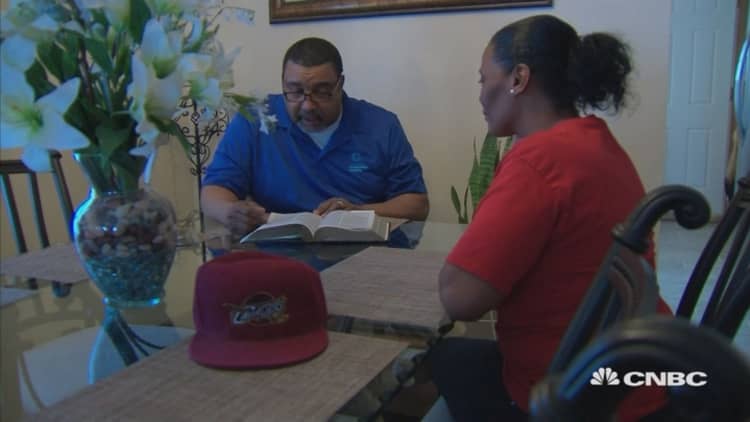Nearly three years after Detroit's historic bankruptcy in July 2013, there are still too many dilapidated homes and not enough properties in good condition.
But even when a buyer and seller can agree on a home, the appraisal and approved loan amount can come in under value because of the area's weak housing market. So if you're a buyer and can't get the appraisal math and related loan to work, there's a good chance you're looking beyond Detroit's borders to the suburbs for property.
Plus, if you're a Detroit homeowner and know you can't get a higher appraisal for your home improvements, there's little incentive to invest and upgrade, which only adds to the city's blight problem and declining population. The upshot is a "vicious cycle" of unprofitable rehabilitation and little incentive to invest in property, according to a new update from the Washington, D.C.-based Urban Institute that focuses on economic and policy research.
"In Detroit, the appraisal problems are so acute," said Laurie Goodman, director of the Urban Institute's Housing Finance Policy Center.
Read MoreSome Americans can't afford to buy homes in their hometown
To offer a sense of the city's struggles, consider that there were only about 500 mortgages in 2015 in Detroit, Goodman said.
Now a new program is expanding and hoping to gain more traction by targeting Detroit's appraisal gap through the use of second mortgages.

To make up for the appraisal shortfall, a borrower is encouraged to simultaneously take out a second mortgage to cover the difference between the purchase price of the home, related rehab costs and the first mortgage.
How the program works
So far $40 million has been earmarked for the second mortgages by three banks — Flagstar, Talmer and Huntington. Other funds for the Detroit Home Mortgage Initiative include contributions from the Ford Foundation and Michigan State Housing Development Authority. The second mortgages are guaranteed with funds from the Kresge Foundation.
So what's the catch?
The program requires participating lenders to offer loans with a combined loan-to-value ratio of more than 100 percent. The loan-to-value ratio tells you how much of a property you own and how much you're borrowing. Typically, assessments with higher ratios are generally seen as higher risk.
The initiative includes other consumer protections. A homeowner is required to hire a project manager for major expensive rehab projects.
"By allowing for mortgages with loan-to-value ratios over 100 percent, it could break the vicious appraisal spiral, which has systematically undervalued rehabbed homes" in Detroit, Goodman said.
Read MoreDetroit bottom could spell boom for Motor City entrepreneurs


